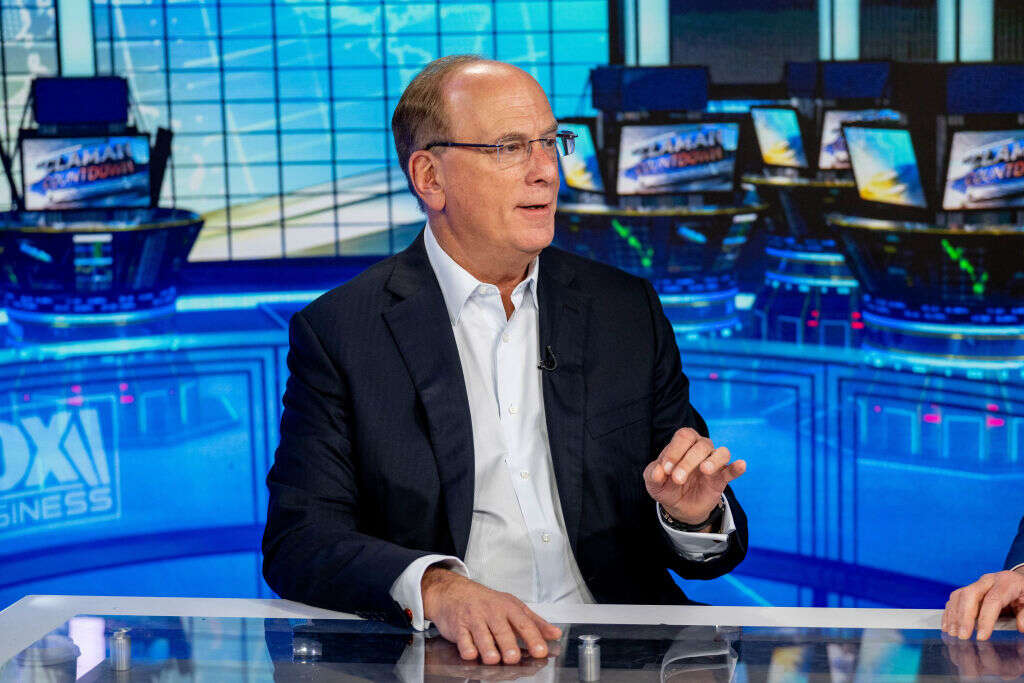

- Despite not mentioning “ESG” once in his most recent letter to shareholders, it is precisely the subject that Larry Fink wanted to discuss.
- Fink makes the point that politicians who target asset managers in their culture war are woefully misguided.
- Fink mentions “fiduciary duty” eight times, more than double his normal dosage in recent years.
How do you tell someone they’re woefully misguided without actually saying it? Tricky one, but Blackrock’s chairman and CEO, Larry Fink, managed it rather deftly in his most recent missive to investors.
The chairman and CEO of the world’s largest – and de facto most influential – asset manager ($8.6trn in AUM) last week published his annual note to much anticipation of many in the financial sector. After a bruising year acting as the straw man for US politicians, eager to drag sustainable investment into the wider, vicious culture wars, many observers were anxious to see if Fink would stand up to the pressure.
Those hoping to see explicit references to “ESG” were sorely disappointed. The notable omission has been interpreted as proof that Fink lacked a moral backbone; that the risk of losing business from trigger-happy Republican state lawmakers who are desperate to prevent investors from factoring ESG into decision-making was proven to be too big to be worth fighting back against the absurdity of it.
But that interpretation would be wrong. Take even a cursory look through the letter and it’s clear Fink not only dedicates the entire letter to environment, society and governance, but in doing so without mentioning “ESG”, he has proven just how spurious and superficial the “anti-ESG” movement truly is.
What’s in a name…
And here’s why: ESG influences all aspects of investment. As crude as the acronym is, it serves a valuable purpose in focusing the mind on a trinity of factors that any serious investor must entertain. You can ban any acronym you want, but you cannot ignore what lies underneath. Fink clearly knows this.
Fink provided an example of each to highlight how material they are to his business and his clients. Concerning the “S”, he referenced what he calls the “silent crisis” of ageing populations of those who lack the savings to support a comfortable life after retirement – something Capital Monitor flagged last week too.
Fink wrote: “You rarely hear about it in the news media. It’s not part of the political dialogue in most countries. And corporate leaders rarely discuss it – not in public anyway. It doesn’t make headlines or attract attention because it’s not immediate. It’s not this year’s – or even next year’s – problem. But it is a crisis. And the longer we delay the conversation about it, the larger the crisis grows.”
On governance, Fink referenced the chaos in the financial market triggered by the collapse of Silicon Valley Bank (SVB), arguably the largest collapse in 15 years (depending on how you define the forced acquisition of Credit Suisse by UBS).
“This is a classic asset-liability mismatch,” remarks Fink. “It’s too early to know how widespread the damage is. The regulatory response has so far been swift, and decisive actions have helped stave off contagion risks. But markets remain on edge. Will asset-liability mismatches be the second domino to fall?”
On the environment, Fink is similarly assertive, acknowledging the opportunities. Many of those opportunities for BlackRock are stimulated by government policy, such as the US Inflation Reduction Act, the irony is possibly lost on many of Fink’s detractors.
“Transition toward lower carbon emissions will reflect the regulatory and legislative choices governments make to balance the need for secure, reliable and affordable energy with orderly decarbonisation… [many of the] next 1,000 unicorns… will be sustainable, scalable innovators – start-ups that help the world decarbonise and make the energy transition affordable for all consumers.”
Fiduciary, fiduciary, fiduciary
Underpinning Fink’s message is the role an asset manager performs in the world. Keen not to position BlackRock as an agent of change – “It is not the role of an asset manager like BlackRock to engineer a particular outcome in the economy” – Fink asserts that, as a fiduciary, he is ultimately responsible for ensuring he delivers what his clients demand in a responsible way – more a conduit of change.
Keen to impress this, Fink makes reference to fiduciary eight times in the letter. In the previous two letters to CEOs and, separately, to shareholders, he felt the need only to reference fiduciary three times or four times on each occasion.
Fink is clearly making the point that for politicians to target asset managers and embroil them in their own irrational hatred of ESG is both misguided and ultimately irresponsible. Unless US politicians are happy to ban fiduciary responsibility or, more absurd still, stop asset owners from having an investment view, then we should probably get back to what we’re supposed to be doing in the first place.
You can erase ESG from the investment lexicon, but you can’t erase its importance. In the process of writing his letter this year, Larry Fink has rather impressively proved just that.
[Read more on Blackrock here]





